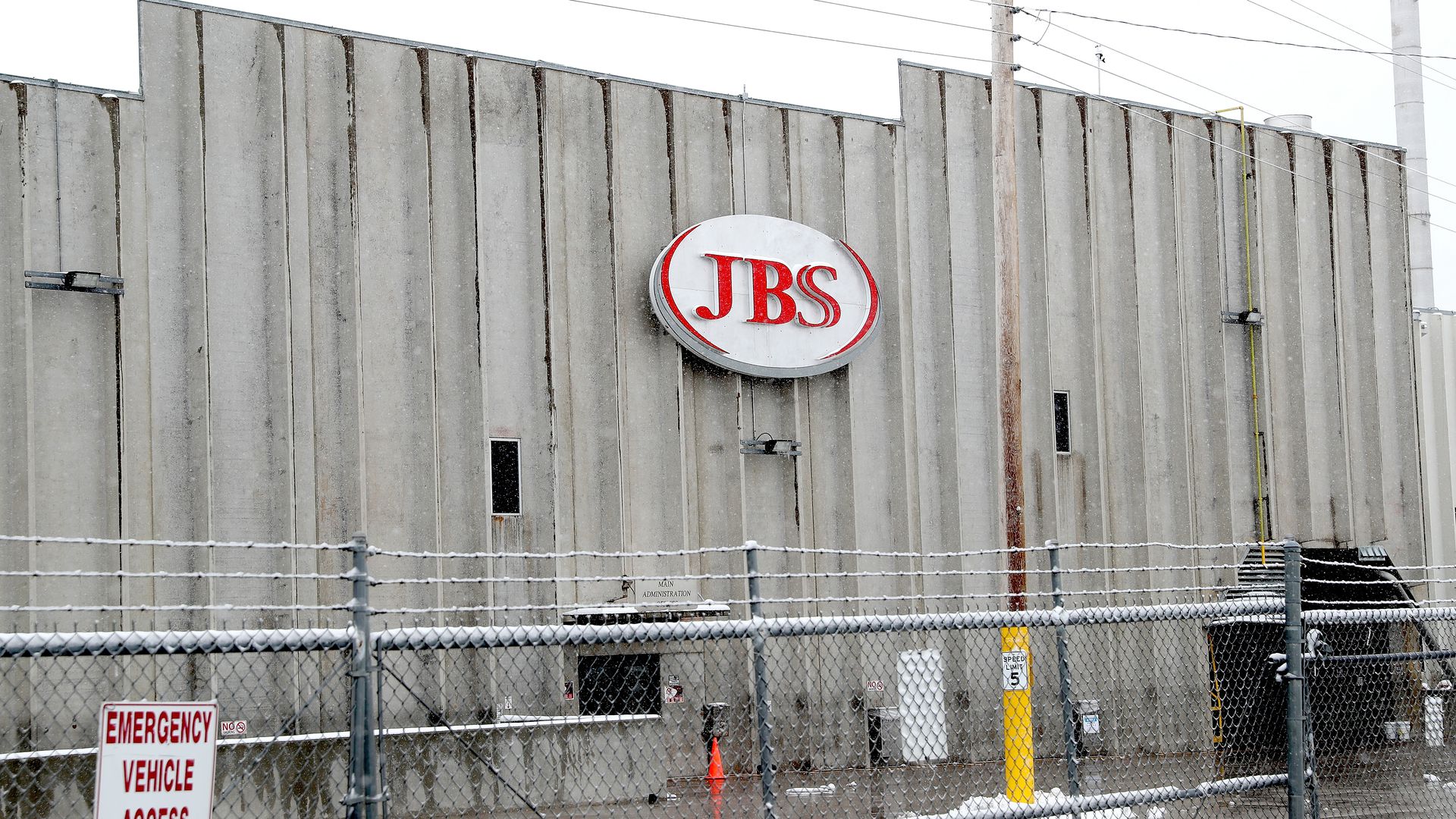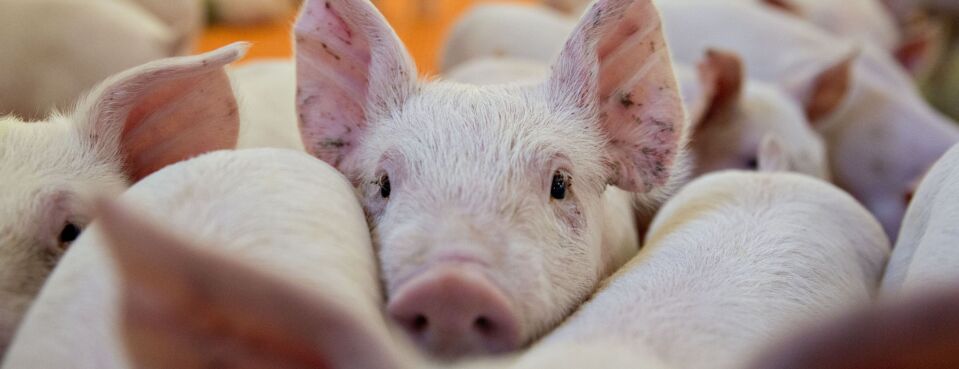
The JBS plant in Worthington, MN, shut down temporarily last April during a COVID-19 outbreak among workers

Share
Minnesota lawmakers and unions representing meat and food processing workers across the state came together on Wednesday to announce new legislation protecting workers and improving health and safety measures during and after the pandemic. Rep. Dan Wolgamott of St. Cloud authored the “Minnesota Safe Workplaces for Meat and Poultry Processing Workers Act,” which seeks to improve working conditions for a group of essential workers that have been doing the hard labor of keeping the food supply in action.
It will provide comprehensive workplace health and safety protections and ensure access to benefits for workers beyond the pandemic. It will also ensure the right of workers to refuse unsafe work and prohibit employers from discriminating against workers that raise concerns. Employers will have to provide personal protective equipment at no cost to employees and give time for washing hands, sanitizing, and disinfecting. It will also provide paid leave to workers so they can recuperate from an illness or take care of family members.
Antonio Jimenez has worked at JBS in Worthington for 26 years. “Everyday, myself and my coworkers put our lives on the line when we go to work,” said Jimenez. “I was here in the plant when the covid outbreak happened. No one wants that to ever happen again.”
The bill will also create a “Workers’ Rights Coordinator” position within the Department of Labor and Industry that will have the authority to enforce, prosecute, and investigate with the help of the attorney general, district attorney, or any city or county attorney. It will also establish safe worker committees consisting of health professionals and workers who will look at ongoing safety issues.
In 2007, unions partnered up to introduce legislation that became the Packinghouse Workers Bill of Rights, but they knew there was room for improvement. When the pandemic hit, the areas for improvement became more clear. Matthew Utecht, president of United Food and Commercial Workers Local 663, said essential workers in plants have been putting their lives on the line and exposing themselves and their families in order to put food on the table for Minnesota families. The general public has never really taken notice until the pandemic, when the media began reporting from inside the facilities. “Last year, COVID-19 outbreaks in Worthington wreaked havoc in the pork plant where our union members work,” said Utecht. “It took a worldwide pandemic to pull back the curtain for the public to really see inside these packing plants and see the kind of work that takes place there. The workers have been long forgotten.”

Utecht, along with president of UFCW Local 9 Rich Morgan of Austin, Minnesota, met with the Department of Labor when the pandemic revealed the need for improvement in legislation. “This legislation is very important to put all the meatpacking industry on the same level playing field,” said Morgan.
Mohamed Goni is a staff organizer from the Greater Minnesota Worker Center, which advocates for workers, especially meat and poultry processing plant workers. “During the pandemic, we have all seen what ‘safe workplace’ means,” said Goni. “We have seen workers who have been pressured to work in an unsafe workplace, we have seen workers who have been blamed for the pandemic and the problems. We have seen workers who have not been given proper PPE but still working alongside other workers have symptoms. What we have seen has been going on even before the pandemic.”

House Majority Leader Ryan Winkler said he was proud to stand with UFCW and continue working on legislation that protects workers. Rep. Winkler and Speaker of the House Melissa Hortman expressed optimism about passing the legislation, stating it should be a bipartisan issue.
The meatpacking industry is one of the most dangerous industries. Even before the pandemic, health and safety concerns were an issue. To workers and lawmakers, what happened last spring when the pandemic first hit was unacceptable. After plant closures across the Midwest threatened the nation’s food supply, former president Donald Trump invoked the Defense Production Act to force plants to stay open without providing protection for workers.
“It was a terrible situation brought on by…too many companies that were willing to sacrifice their workers’ health in order to avoid taking on some basic responsibilities for their protection,” said Rep. Winkler. “This is 21st century Minnesota, not Upton Sinclair’s The Jungle. We cannot afford to have meatpacking workers be the center of these outbreaks.”

